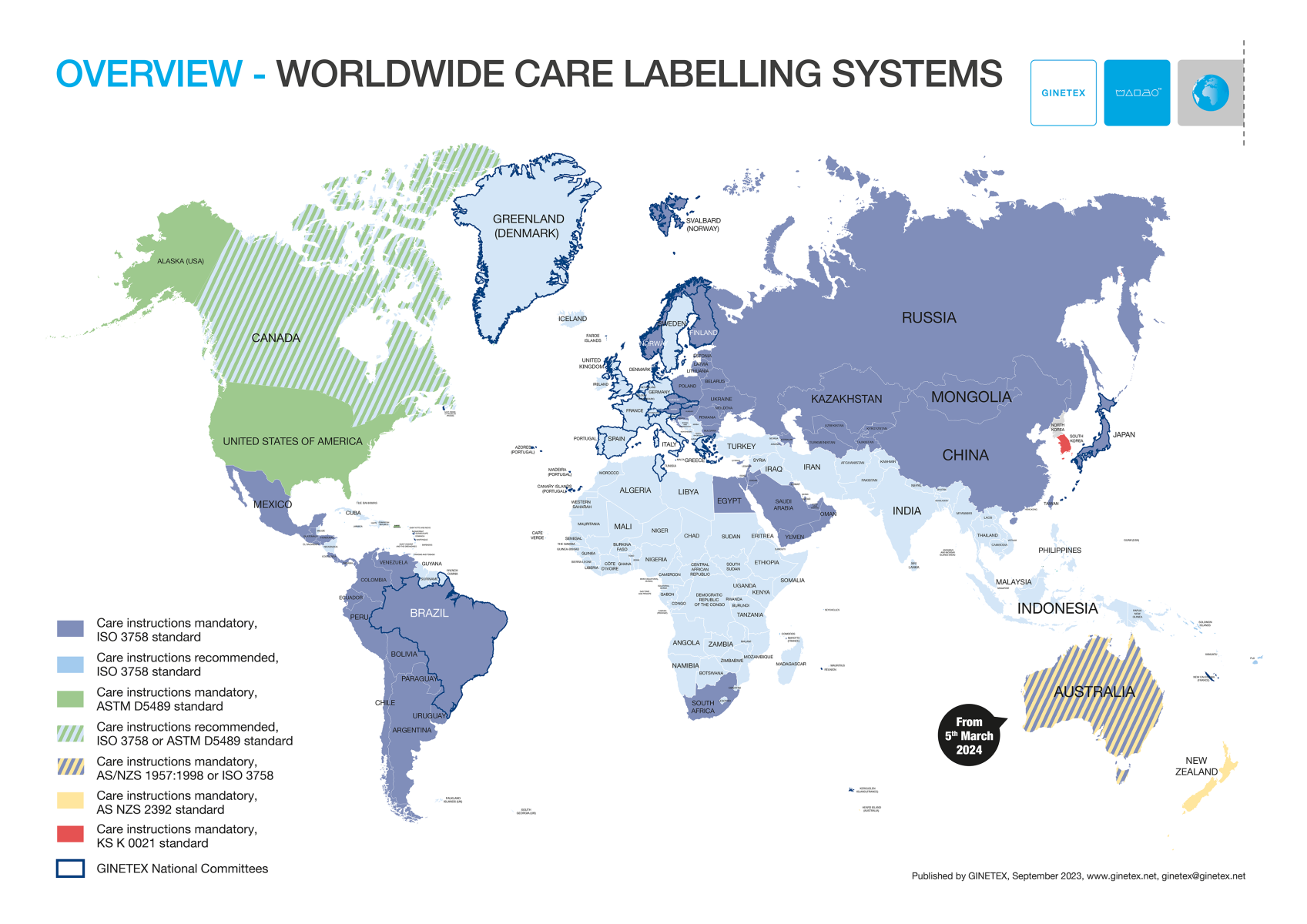LAUNDRY:
How washing machine programs affect electricity consumption
Controlling energy consumption is at the heart of today’s economic and environmental concerns. Under the light of the forecasted energy shortage in the coming winter the topic of energy saving has even got another importance.
Laundry represents up to 40% of a textile’s environmental impact over its lifecycle.
GINETEX wanted to go a step further by studying the true impact of the different stages of textile washing on electricity consumption and unveils the main quantified indicators on the potential electricity consumption savings gained when using the right habits and washing routines.
GINETEX unveils the findings of a study conducted by Testex, an independent laboratory, which specializes in textile analysis and certification.
Tips, best practices, and beliefs: what are the most energy-efficient washing machine cycles and how can we adapt them to our daily lives?
- Try to wash with lowest temperature which still ensures a satisfactory result (1 wash cycle is always preferred to 2 wash cycles).
- Reducing the washing temperature from 40°C to 30°C may serve approximately 30% of the consumed energy.
- Always use the entire load capacity of the washing machine in use.
- A quick wash cycle may serve another 20% of the energy consumption, especially when used at lower washing temperature.
- The use of washing temperatures higher than 40°C may help to remove difficult stains but lead to significant higher energy consumption (60°C: + 50%; 90°C: more than double of the energy used. They are therefore recommended for very dirty textiles if authorized by the label.
For more information, read the press release.
Tags : Care
News
GINETEX NEW PRESIDENT – On November 8th 2024, Adam Mansell has been appointed as GINETEX President for a 2-year period starting January1st 2025. He is the CEO of the UK Fashion and Textile Association (UKFT).
ISO 3758:2023 STANDARD HAS BEEN PUBLISHED
December 6th ,2023 – ISO 3758:2023 standard has been published, Textiles – Care labelling code using symbols.
This fourth edition cancels and replaces the third edition (ISO 3758:2012) technically revised.
RESULTS OF THE 4th IPSOS EUROPEAN BAROMETER 2023
What are the textile care habits in Europe ?
A NEW PRESIDENT FOR GINETEX
Mr. Thomas Lange, from German Fashion Association, has been appointed President of GINETEX for 2 years starting 1 January 2023.
RESULTS OF THE 3rd IPSOS EUROPEAN BAROMETER 2021
Environmental concerns are now central to Europeans’ new textile care habits.
BREXIT: IMPACT ON TEXTILE LABELLING
Textile labelling requirements in the UK will change starting 1st January 2021. Here are the main new requirements.
THE CHARTER FOR SUSTAINABLE CLEANING
A.I.S.E. presents first products which comply with the renewed detergents industry sustainability standard and relaunched its cleanright.eu platform.
A NEW PRESIDENT FOR GINETEX
Mr. Alejandro Laquidain, from Consejo Intertextil Español, has been elected President of GINETEX for 2 years starting 1 January 2021.
CLEVERCARE.INFO - A REVAMPED WEBSITE!
Enhanced with new sections, the aim of this new website is to become the reference in textile eco-care for consumers.
RESULTS OF THE 2ND IPSOS EUROPEAN BAROMETER 2019
One of the main findings is that durability of clothing is at the heart of Europeans’ interests, who wish to keep their garments for as long as possible.
HOW TO CLEAN A FABRIC FACE MASK
In the time of Covid-19, GINETEX gives you the main recommendations on how to take care for your fabric face mask.
GINETEX SIGNS THE UN CHARTER
By signing the UN Fashion Industry Charter for Climate Action, we continue our commitment to make consumers and brands aware of the changes necessary to decrease the impact of the textile and Fashion industry on the environment
SUSTAINABLE TEXTILE CARE
Clervercare.info, a full marketing program aimed at end-customers. Discover more with our video and comic strips!
A NEW PARTNERSHIP
GINETEX is now member of the Sustainable Apparel Coalition – Both of our international organizations are teaming up for a better world!
JOINT INDUSTRY ANNOUNCEMENT
A.I.S.E., APPLiA & GINETEX are publishing their joint tips for sustainable laundering.
A BAROMETER FOR CARE LABELLING
GINETEX, in partnership with IPSOS, unveils the outcomes of its European barometer "Europeans and textile care labelling".
THE EXTENDED PRODUCER RESPONSIBILITY (EPR)
France: The AGEC Law imposes, from January 1st 2022, the affixing of TRIMAN signage and info-sorting on products such as clothing textiles, household linen and footwear.
National Members
Video
GINETEX has developed an internationally applicable logo for sustainable care. Consumers are given information to help them reduce the environmental impact of caring for textile.



